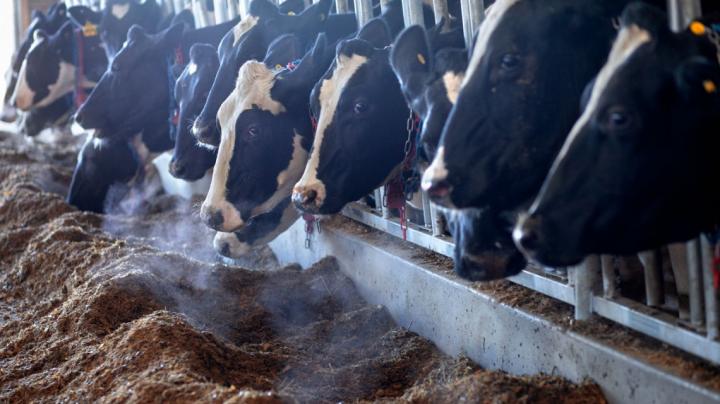
Credit: Jason Koski, Cornell University
ITHACA, N.Y. – Dairy farmers have improved the efficiency and reduced the environmental impacts of their farms over the recent decades, but consumers, policymakers and others are still concerned about cattle’s effects on water and the climate.
A new open-source computer model being developed by a Cornell University-led interdisciplinary team will simulate production and quantify the environmental effects of management decisions made on dairy farms.
The Ruminant Farms Systems Model project is funded by a four-year, $1 million grant from the U.S. Department of Agriculture’s National Institute of Food and Agriculture.
“A next-generation, whole-farm, dairy sustainability simulation model allows us to understand interactions in these complex systems and how the outcomes from one part of the system influences other parts of the system,” said Kristan Reed, assistant professor of animal science, and principal investigator of the project.
“For example, if you are increasing milk production on a given fixed landscape, you’re likely going to increase manure production,” she said, “and so what are the outcomes on the landscape that would go along with that increased milk production?”
Scientists and dairy farmers will need such tools to make economic and environmentally balanced management decisions, while industry personnel and policymakers can use them to inform policies for improving the sustainability of the dairy industry.
Dairy cows are among the biggest agricultural contributors to both climate change and water pollution. Methane, a potent greenhouse gas, is released directly from cows as they digest grass and grain. Additionally, decomposing manure creates methane, nitrous oxide and ammonia. While nitrous oxide is also a greenhouse gas, ammonia contaminates water and contributes to acid rain. Additionally, nutrients such as phosphorus and nitrogen in manure pollute groundwater, streams and lakes.
A team of animal scientists, agronomists, soil scientists, microbiologists, engineers and computer scientists at Cornell; the University of Wisconsin, Madison; the University of Arkansas; the University of California, Davis; and the USDA Agricultural Research Service, began working on the model three years ago. Since then, they have combined and interconnected animal, manure, crop and soil, and feed storage modules into their computer code.
They have been in dialogues with local farmers to get feedback on the types of information most relevant to those farmers’ decision-making processes and will run pilot simulations in commercial settings.
Some main objectives include addressing limitations of current farm management models by writing clean and clear computer codes and making the system flexible so it can incorporate new management practices. Daily weather data is also being added to the model in order to simulate future climate scenarios.
In the future, the team may expand the model to incorporate meat production and possibly create a simple non-technical interface for farmers and others.
###
Media Contact
Lindsey Hadlock
[email protected]
Original Source
https:/




